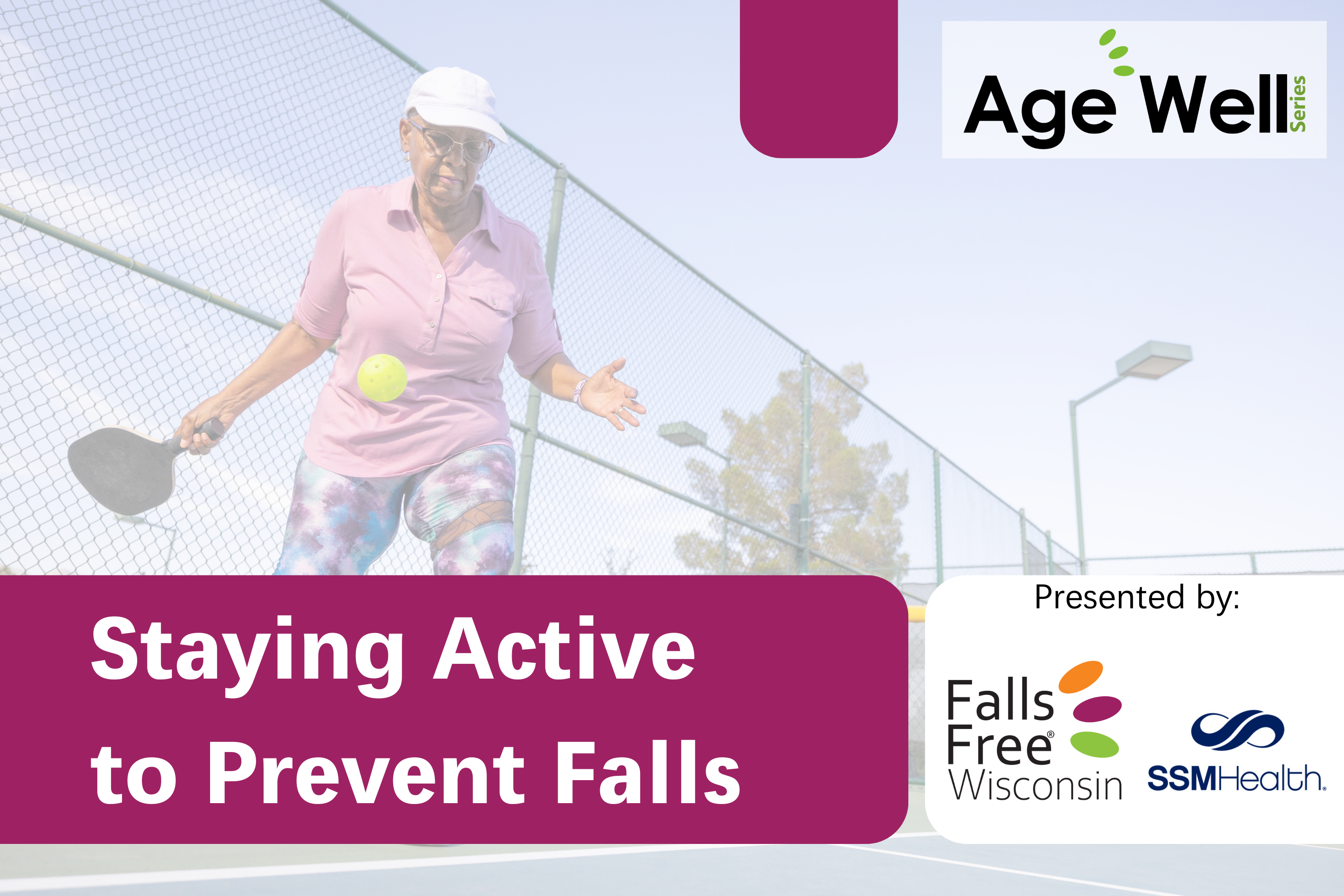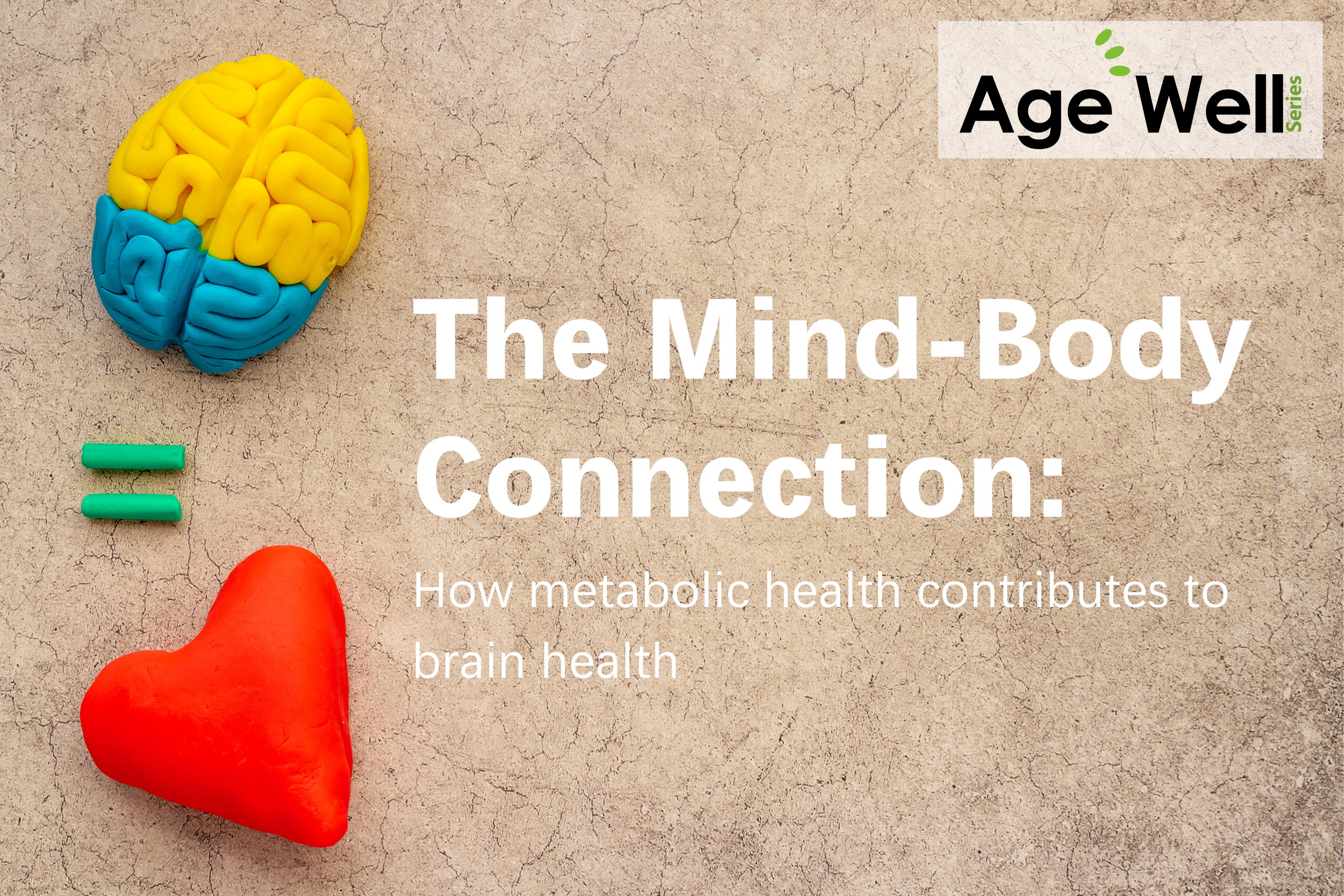
Age Well with WIHA
A newsletter from the Wisconsin Institute for Healthy Aging
Age Well with WIHA: July/August 2024
WIHA’s newsletter is published bi-monthly and sent by email. View the email newsletter online or read the full stories below. Don’t forget to subscribe!
Financial Health
It is important to balance each of the 8 Dimensions of Wellness for your overall health. Financial health is one of the dimensions. Financial health includes understanding your financial situation (including budgeting, investing, and personal finance management) and taking care of it to prepare for or avoid financial challenges. It is important to be comfortable with where your money comes from and where it’s going. Financial planning includes planning for after you’re gone. August is Make-a-Will month. FreeWill.com provides us with three reasons why you should make a will this Make-a-Will month: 1) It’s an important legal document that everyone should have, 2) It provides peace of mind to you and your family, and 3) It lets you create a legacy that lasts beyond your lifetime. Already have a will in place? Estate attorneys recommend reviewing your will every three to five years. Visit Freewill.com for free estate planning resources to help you prepare for important decisions.
If you’re located in the Wauwatosa area, join us for the next Age Well Series featuring attorney Paul Margerie, LLC at the West Suburban YCMA on August 22nd 11:30-12:30pm. Learn more here.
Community Safety: Falls Prevention
Summer days are often filled with many activities – walking the dogs, attending sports games, rushing to appointments, traveling, or just enjoying time in nature. With the increase in outings, there may be an increase in how many fall hazards you come across.
It’s important to stay safe while out and about. Here are some things to keep in mind:
- Uneven pavement, grass, or sidewalks are common. When walking, take your time and scan ahead for hazards. Consider using walking sticks or a cane for extra support and take extra care on windy and rainy days.
- Improve your balance and strength with regular exercise. Consider joining a community exercise program or local fitness facility.
- Be present in the moment. It may be difficult, but try to avoid rushing and distractions while walking, especially if on uneven surfaces.
- Wear safe, comfortable shoes. While a common choice in the summer, flip flops or sandals don’t offer the same support as a good tennis shoe. Look for footwear that has a firm heel collar to provide stability, laces to ensure that the shoe holds onto your feet when walking, and a textured sole and beveled heel to prevent slipping.
- When crossing the road, do so at the safest point, preferably a crosswalk. Take your time and make eye contact with any drivers around to ensure that they see you.
- Be present in the moment. It may be difficult but try to avoid rushing and distractions while out and about, especially if walking on uneven surfaces or in unfamiliar areas.
- On sunny days, wear sunglasses to reduce glare. When going from outside to indoors, allow time for your eyes to adjust to the different lighting before continuing.
All things considered, take your time and enjoy a falls free Wisconsin summer. Find more information on ways you can prevent falls at FallsFreeWI.org.
Stay Hydrated this Summer
Summer is a wonderful time to get outdoors for walks, bicycle rides, or just to soak up the sun. While enjoying the warmer weather, it is important to drink enough water to stay hydrated. Staying hydrated is important to keep your body and mind functioning. According to the Mayo Clinic, water makes up 50 to 70 percent of body weight and every cell, tissue, and organ in the body needs water to work properly. Dehydration (not having enough water in your body) can have negative effects. Dehydration can cause dizziness or a drop in your blood pressure which can increase your risk of falling (to learn more about falls prevention, visit Falls Free WI). Dehydration can also cause constipation, bladder infections, and even bladder or bowel leakage. Older adults are more likely to be dehydrated (Learn more about dehydration). Because we are sweating more in the hotter weather, it is important to drink more water than you usually drink. Don’t wait until you’re thirsty! The National Academy of Medicine suggests drinking about 13 cups of fluids for men and 9 cups for women aged 51 and older.
Mayo Clinic suggests these great ways to make sure that you are staying hydrated:
- Have a glass of water when you get up in the morning and before bed.
- Drink fluids throughout the day.
- Infuse your water with slices of fruit, vegetables, or herbs.
- Fill and use your favorite water bottle daily.
- Don’t substitute alcohol for water.
A great way to increase your fluid intake is to vary it up! Try adding different fruits, vegetables, or herbs to your water for a fresh new taste! Here’s a few we’ve thought of:
- Cucumbers
- Watermelon
- Strawberries
- Raspberries
- Lemons
- Limes
- Grapefruit
- Zucchini
- Mint
- Rosemary
- Basil
There are many benefits and fun ways to stay hydrated and healthy during the summer!

In this Issue
Age Well Series
The Age Well series is a set of presentations designed to bring you information about how to age well! These past two months, we had two fantastic presentations. The first on Staying Active to Prevent Falls. The second on The Mind-Body Connection: How metabolic health contributes to brain health. View the recordings below or visit the Age Well Series page to find out more information about each event and download the slides.
Upcoming Events
August/September: Making a Will
October: Nutrition
Stay tuned for more information and details.
Featured Program: Stand Up for Your Health
Research: Stand Up for Your Health is an evidence-based program shown to reduce your sitting time. Sitting time (or sedentary behavior) has been shown to increase the risk for chronic conditions. This 5-session program explains why sitting time is bad and what you can do to stand up and move more.
Who is it for: Stand Up for Your Health is designed for those over the age of 55 who sit more than 6 hours per day
How to participate: You can participate in Stand Up for Your Health in-person or online! Find a workshop near you!
“The awakening of just standing up and how much it improved my life was valuable. Once you start counting the minutes, you understand how much you are sitting. I have incorporated more standing during the day into our lifestyle.”
Sue Coffman
Vilas County
Find a Workshop
Take charge of your health by taking a WIHA workshop. We offer in-person and virtual (online or by phone) programs that give you the tools to age well. Getting started is easy – simply click the link below.
Enjoyed the newsletter? Subscribe today!


